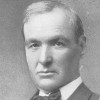Always keep your composure. You can’t score from the penalty box; and to win, you have to score.
Bobby Hull (b. 1939) Canadian hockey pro [Robert Marrin Hull, Jr.]
(Attributed)
The supreme happiness of life is the conviction that we are loved; loved for ourselves — say rather, loved in spite of ourselves.
[Le suprême bonheur de la vie, c’est la conviction qu’on est aimé; aimé pour soi-même, disons mieux, aimé malgré soi-même.]
Victor Hugo (1802-1885) French writer
Les Misérables, Part 1 “Fantine,” Book 5 “The Descent,” ch. 4 (1.5.4) (1862) [tr. Wilbour (1862)]
(Source)
(Source (French)). Alternate translations:
The supreme happiness of life is the conviction of being loved for yourself, or, more correctly speaking, loved in spite of yourself.
[tr. Wraxall (1862)]
The greatest happiness of life is the conviction that we are loved -- loved for ourselves, or rather, loved in spite of ourselves.
[E.g. (1873)]
The supreme happiness of life consists in the conviction that one is loved; loved for one's own sake -- let us say rather, loved in spite of one's self.
[tr. Hapgood (1887)]
The supreme happiness in life is the assurance of being loved; of being loved for oneself, even in spite of oneself.
[tr. Denny (1976)]
The supreme happiness of life is the conviction that we are loved; loved for ourselves -- say rather, loved in spite of ourselves.
[tr. Wilbour/Fahnestock/MacAfee (1987)]
The supreme happiness of life is the conviction that you are loved, loved for yourself, better still, loved despite yourself.
[tr. Donougher (2013)]
Laughter is sunshine; it chases winter from the human face.
[Le rire, c’est le soleil; il chasse l’hiver du visage humain.]
Victor Hugo (1802-1885) French writer
Les Misérables, Vol. 2 “Cosette,” Book 8 “Cemeteries Take What is Given Them,” ch. 9 “The Close” (1862) [tr. Wilbour]
Alt trans. [Denny (1980)]: "Laughter is a sun that drives out winter from the human face." Full text. Cited as Part II, ch. 8 "Cemeteries Take What They Are Given."
It is nothing to die; it is horrible not to live.
[Ce n’est rien de mourir; c’est affreux de ne pas vivre.]
Thought is the labor of the intellect, reverie is its pleasure.
[La pensée est le labeur de l’intelligence, la rêverie en est la volupté.]
The greatest follies, like the stoutest ropes, are often composed of a multitude of strands. Take the cable thread by thread, take separately each petty determining motive, and you can snap them one by one and say, “There’s no more to it than that!” Braid them and twist them together, and what you have is momentous.
[Les fortes sottises sont souvent faites, comme les grosses cordes, d’une multitude de brins. Prenez le câble fil à fil, prenez séparément tous les petits motifs déterminants, vous les cassez l’un après l’autre, et vous dites: Ce n’est que cela! Tressez-les et tordez-les ensemble, c’est une énormité.]Victor Hugo (1802-1885) French writer
Les Misérables, Part 2 “Cosette,” Book 5 “Dark Hunt, Mute Mutts,” ch. 10 (2.5.10) (1862) [tr. Donougher (2013)]
(Source)
(Source (French)). Alternate translations:
Great blunders are often made, like large ropes, of a multitude of fibres. Take the cable thread by thread, take separately all the little determining motives, you break them one after another, and you say: that is all. Wind them and twist them together, they become an enormity.
[tr. Wilbour (1862)]
Great follies are often made, like stout ropes, of a multitude of fibers. Take the cable, thread by thread, catch hold of the small determining motives separately, and you break them one after the other, and say to yourself, “It is only that”; but twist them together and you have an enormity.
[tr. Wraxall (1862)]
The greatest follies are often composed, like the largest ropes, of a multitude of strands. Take the cable thread by thread, take all the petty determining motives separately, and you can break them one after the other, and you say, "That is all there is of it!" Braid them, twist them together; the result is enormous.
[tr. Hapgood (1887)]
The greatest blunders, like the thickest ropes, are often compounded of a multitude of strands. Take the rope apart, separate it into the small threads that compose it, and you can break them one by one. You think, 'That is all there was!' But twist them all together, and you have something tremendous.
[tr. Denny (1976)]
Great blunders are often made, like large ropes, of a multitude of fibers. Take the cable thread by thread, take all the little determining motives separately, you break them one after another, and you say: That is all it is. Braid them and twist them together, they become an enormity.
[tr. Wilbour/Fahnestock/MacAfee (1987)]
There are thoughts which are prayers. There are moments when, whatever the posture of the body, the soul is on its knees.
[De certaines pensées sont des prières. Il y a des moments où, quelle que soit l’attitude du corps, l’âme est à genoux.]
Victor Hugo (1802-1885) French writer
Les Misérables, Part 4 “Saint Denis,” Book 5 “The End of Which Does Not Resemble the Beginning,” ch. 4 (4.5.4) (1862) [tr. Denny (1976)]
(Source)
(Source (French)). Alternate translations:
Certain thoughts are prayers. There are moments when, whatever be the attitude of the body, the soul is on its knees.
[tr. Wilbour (1862)]
Certain thoughts are prayers. There are moments when the soul is kneeling, no matter what the attitude of the body may be.
[tr. Wraxall (1862)]
Certain thoughts are prayers. There are moments when, whatever the attitude of the body may be, the soul is on its knees.
[tr. Hapgood (1887)]
Certain thoughts are prayers. There are moments when, whatever the attitude of the body, the soul is on its knees.
[tr. Wilbour/Fahnestock/MacAfee (1987)]
If you play it safe in life, you’ve decided that you don’t want to grow anymore.
Shirley Hufstedler (1925-2016) American jurist, US Secty of Education (1979-81)
(Attributed)
Don’t knock the weather; nine-tenths of the people couldn’t start a conversation if it didn’t change once in a while.
The greatest mistake you can make in life is to be continually fearing you will make one.
Elbert Hubbard (1856-1915) American writer, businessman, philosopher
The Philistine, Vol. 13, #5 (Nov 1901)
If you would escape moral and physical assassination, do nothing, say nothing, be nothing — court obscurity, for only in oblivion does safety lie.
Elbert Hubbard (1856-1915) American writer, businessman, philosopher
Little Journeys to the Homes of American Statemen, “William H. Seward” (1916)
(Source)
Variants show up elsewhere in Hubbard's writings and and his quote epigrams.Often misattributed to Aristotle.
- To escape criticism -- do nothing, say nothing, be nothing.
- To avoid unkind criticism: do nothing, say nothing, be nothing.
- There is only one way to avoid criticism: do nothing, say nothing and be nothing.
Every man is a dam fool at least ten minutes a day. Wisdom consists in not exceeding the limit.
Elbert Hubbard (1856-1915) American writer, businessman, philosopher
The Philistine, Vol. 29, #6 (Nov 1909)
Full text.
Sometimes given: "Every man is a damn fool at least five minutes every day; wisdom consists in not exceeding the limit."
Although gold dust is precious, when it gets in your eyes it obstructs your vision.
Hsi-Tang Chih Tsang (735-814) Chinese Zen master
(Attributed)
Success lies, not in achieving what you aim at, but in aiming at what you ought to achieve, and pressing forward, sure of achievement here, or if not here, hereafter.
R. F. Horton (1855-1934) English nonconformist minister, reformer [Robert Forman Horton]
Success and Failure (1897)
Why are you laughing? Just change the name, and the story could be told of you.
[Quid rides? Mutato nomine de te / fabula narratur.]
Horace (65-8 BC) Roman poet and satirist [Quintus Horacius Flaccus]
Sermonum, I.1.69
Sometimes "... fabula de te narratur."
Alternate translations:
- "Do you but change the name / Of you is saide the same."
- "Change but the name, of you the tale is told."
- "Change only the name and this story is also about you."
- "Change but the name, and the tale is told of you."
- "What are you laughing at? Just change the name and the joke's on you."
- "You laugh? Well, just change the name and you'll find that this story, / as a matter of fact, means YOU." (tr. S.P. Bovie (2002))
Many brave men lived before Agamemnon, but all unwept and unknown they sleep in endless night, for they had no poets to sound their praises.
As we speak, cruel time is fleeing. Seize the day, leave as little as possible to tomorrow.
[… dum loquimur, fugerit invida
aetas: carpe diem, quam minimum credula postero.]
When your neighbor’s wall is on fire, it becomes your business.
[Num tua res agitur paries cum proximus ardet.]
Anger is momentary madness, so control your passion or it will control you.
[Ira furor brevis est: animum rege: qui nisi paret imperat.]
Ours is a practical people, to whom ideals furnish the theory of political action, upon which they want not only firm assurance, but also effective practice. They want programmes, but they want action to flow from them. They want constructive common sense. They want the development of the common will, not the views of a single individual. They are beginning to realize that words without action are the assassins of idealism.
It is a paradox that every dictator has climbed to power on the ladder of free speech. Immediately on attaining power each dictator has suppressed all free speech except his own.
Herbert Hoover (1874-1964) American engineer, bureaucrat, President of the US (1928-32)
Speech, Colby College (8 Nov 1937)
Full text.
All things are best when done without excess: it is as wrong to hurry off a guest who does not wish to leave as to detain a man who longs for home. Kind care for those who stay — and warm farewells for those who go.
[ἶσόν τοι κακόν ἐσθ᾽, ὅς τ᾽ οὐκ ἐθέλοντα νέεσθαι
ξεῖνον ἐποτρύνει καὶ ὃς ἐσσύμενον κατερύκει.
χρὴ ξεῖνον παρεόντα φιλεῖν, ἐθέλοντα δὲ πέμπειν.]Homer (fl. 7th-8th C. BC) Greek author
The Odyssey [Ὀδύσσεια], Book 15, l. 72ff (15.72) [Menelaus to Telemachus] (c. 700 BC) [tr. Mandelbaum (1990)]
(Source)
(Source (Greek)). Alternate translations:
A like ill ’tis, to thrust out such a guest
As would not go, as to detain the rest.
We should a guest love, while he loves to stay,
And, when he likes not, give him loving way.
[tr. Chapman (1616)]
I purpose not to make you longer stay;
For I conceive ’tis not a good man’s part,
To make too much or little of his guest,
To hold him when he gladly would depart,
Or press him to begone e’er he thinks best.
In hospitality this rule is true:
Love him that stays, help forth the going guest.
[tr. Hobbes (1675), l. 60ff]
Alike he thwarts the hospitable end,
Who drives the free, or stays the hasty friend:
True friendship's laws are by this rule express'd,
Welcome the coming, speed the parting guest.
[tr. Pope (1725)]
The middle course is best; alike we err,
Him thrusting forth whose wish is to remain,
And hind’ring the impatient to depart.
This only is true kindness -- To regale
The present guest, and speed him when he would.
[tr. Cowper (1792), l. 82ff]
Let us in all things the true mean apply;
Roughness offends, and over-courtesy.
He to my mind an equal sin doth show
Who, when a guest would linger, hints good-bye,
And who, if one desire to part, says no.
Love well the tarrying guest, and speed him fain to go.
[tr. Worsley (1861), st. 9]
An equal wrong it is to drive away
The guest, who fain would tarry; and to keep
Against his will the guest who fain would go!
'Tis right to treat with love the tarrying guest;
And speed on his way the guest, who wills to go!
[tr. Bigge-Wither (1869), l. 72ff]
Those acts which to strict equity conform
Are worthiest ever: and the selfsame wrong
Doth he commit who from his home would drive
The guest who fain would linger there, -- with him
Who stays the man that on his way would speed.
[tr. Musgrave (1869), l. 113ff]
He does equal wrong who speeds a guest that would fain abide, and stays one who is in haste to be gone. Men should lovingly entreat the present guest and speed the parting.
[tr. Butcher/Lang (1879)]
For in all things measure is best.
And good is neither fashion, to thrust out the willing guest
Who is fain to abide, or to stay him who longeth to be on the road;
But to cherish the guest that abideth and to speed the departer is good.
[tr. Morris (1887), l. 71ff]
It is an equal fault to thrust away the guest who does not care to go, and to detain the impatient. Best make the stranger welcome while he stays, and speed him when he wishes.
[tr. Palmer (1891)]
Moderation is best in all things, and not letting a man go when he wants to do so is as bad as telling him to go if he would like to stay. One should treat a guest well as long as he is in the house and speed him when he wants to leave it.
[tr. Butler (1898)]
'Tis equal wrong if a man speed on a guest who is loath to go, and if he keep back one that is eager to be gone. One should make welcome the present guest, and send forth him that would go.
[tr. Murray (1919)]
There should be moderation in all things, and it is equally offensive to speed a guest who would like to stay and to detain one who is anxious to leave. What I say is, treat a man well while he’s with you, but let him go when he wishes.
[tr. Rieu (1946)]
It is equally bad when one speeds on the guest unwilling to go, and when he holds back one who is hastening. Rather one should befriend the guest who is there, but speed him when he wishes.
[tr. Lattimore (1965)]
Balance is best in all things. It’s bad either way,
spurring the stranger home who wants to linger,
holding the one who longs to leave -- you know,
‘Welcome the coming, speed the parting guest!’
[tr. Fagles (1996)]
It's just as wrong to rush a guest's departure
When he doesn't want to go, as it is
To hold him back when he is ready to leave.
Make a guest welcome for as long as he stays
And send him off whenever he wants to go.
[tr. Lombardo (2000), l. 74ff]
There should be moderation in all things, and it is equally offensive to speed a guest who would like to stay and to detain one who is anxious to leave. Treat a man well while he's with you, but let him go when he wishes.
[tr. DCH Rieu (2002)]
It is, I think, an equal failing to speed a guest's departure when he is reluctant to leave and to detain him when eager to go. One must care for the guest in one's house, but send him on when he wishes.
[tr. Verity (2016)]
To force a visitor to stay is just as bad as pushing him to go. Be kind to guests while they are visiting, then help them on their way.
[tr. Wilson (2017)]
It's just as wrong to urge a guest's departure against his will as to keep him when it's itching to be off. Treat your guest well while he's there, let him go when he wants.
[tr. Green (2018)]
It’s bad when someone does not want to leave
to be too quick to send him on his way,
but just as bad is holding someone back
when he’s ready to depart. For a host
should welcome any guest in front of him
and send away the one who wants to go.
[tr. Johnston (2019), l. 94ff]
















